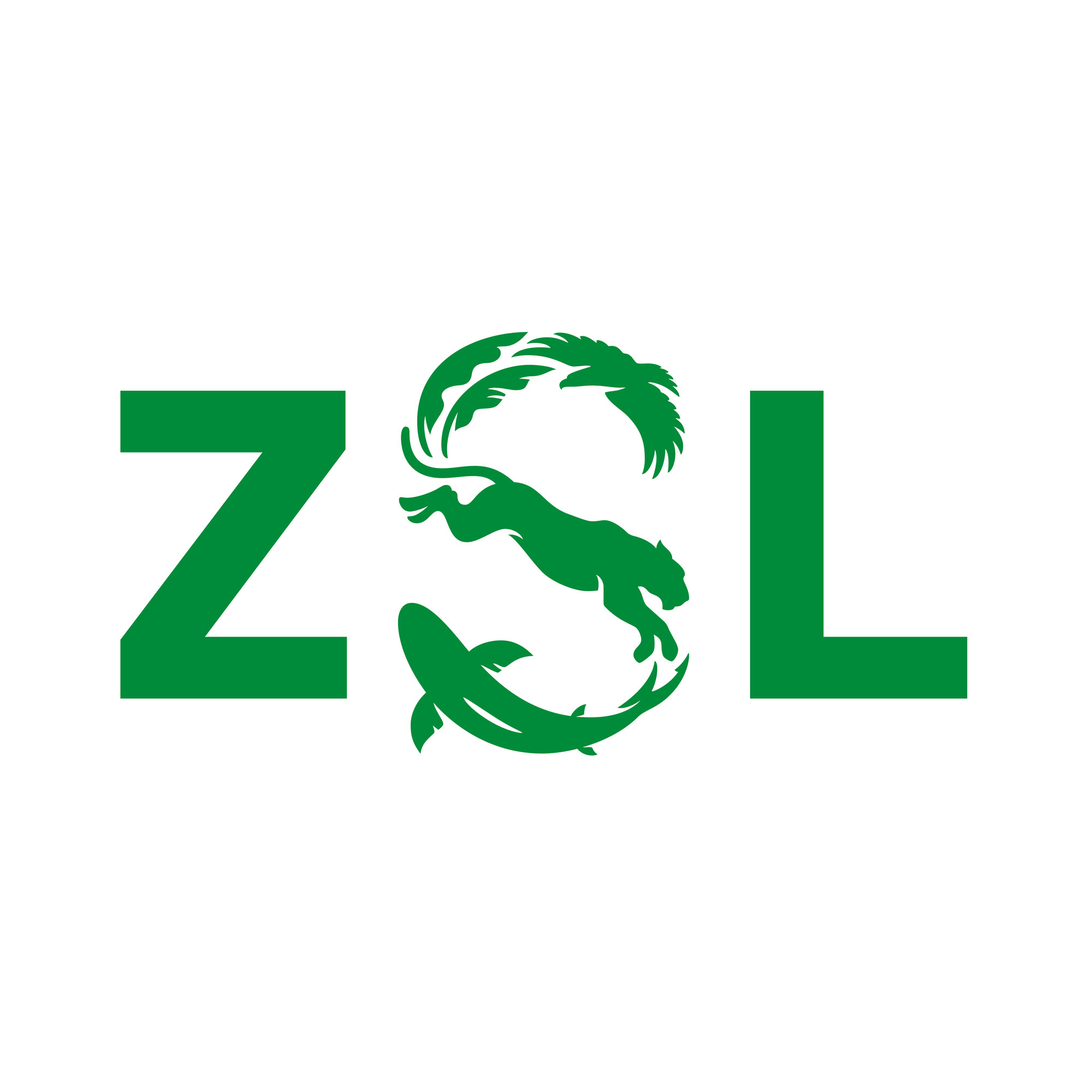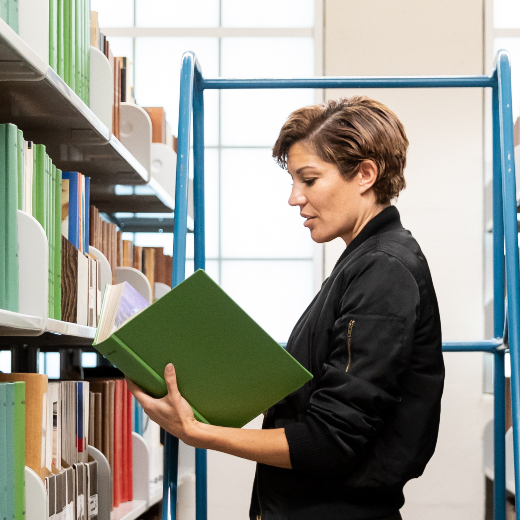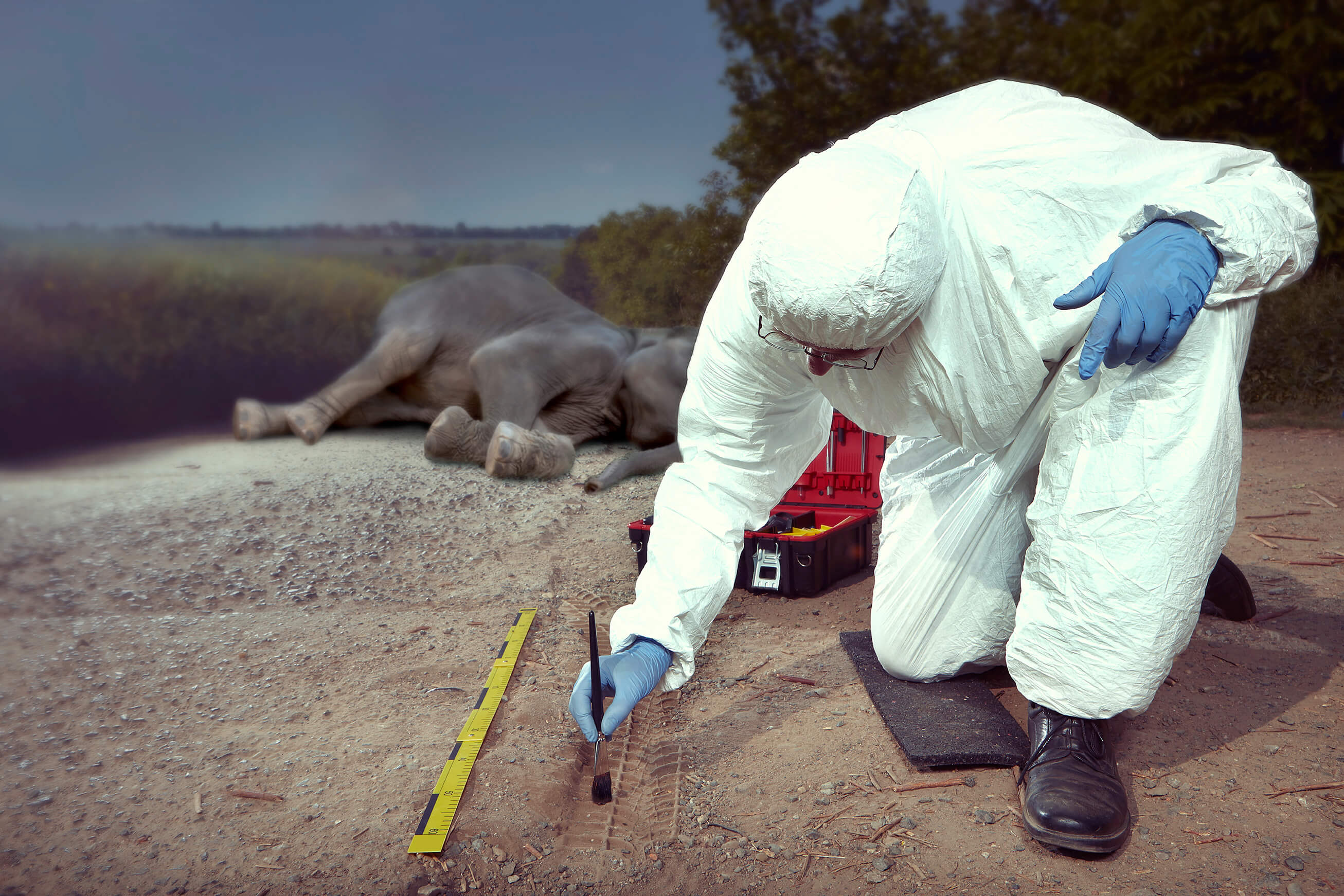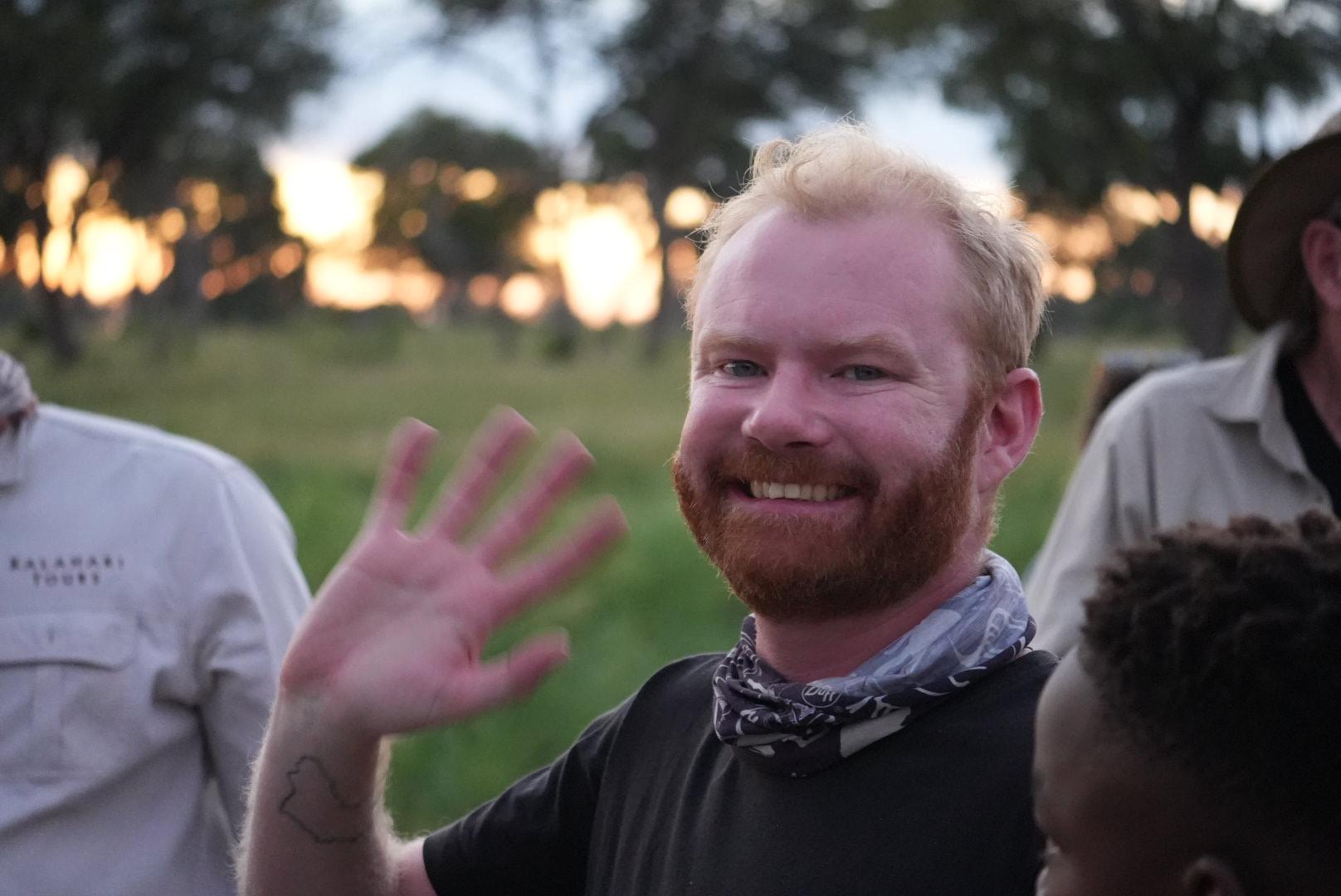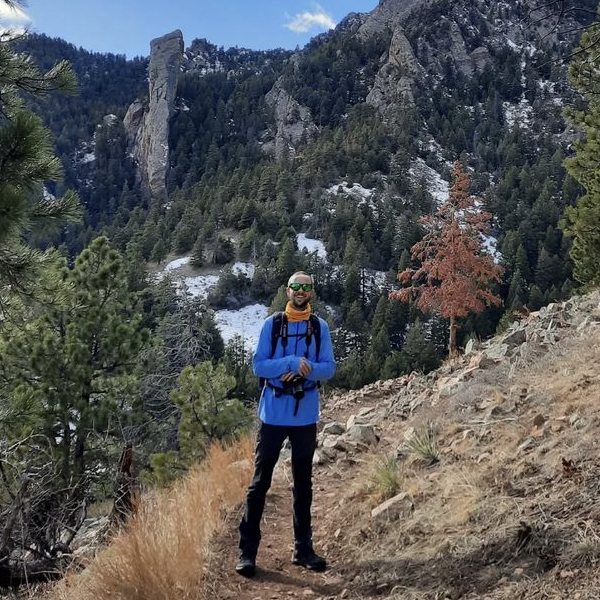With new technologies revolutionizing data collection, wildlife researchers are becoming increasingly able to collect data at much higher volumes than ever before. Now we are facing the challenges of putting this information to use, bringing the science of big data into the conservation arena. With the help of machine learning tools, this area holds immense potential for conservation practices. The applications range from online trafficking alerts to species-specific early warning systems to efficient movement and biodiversity monitoring and beyond.
However, the process of building effective machine learning tools depends upon large amounts of standardized training data, and conservationists currently lack an established system for standardization. How to best develop such a system and incentivize data sharing are questions at the forefront of this work. There are currently multiple AI-based conservation initiatives, including Wildlife Insights and WildBook, that are pioneering applications on this front.
This group is the perfect place to ask all your AI-related questions, no matter your skill level or previous familiarity! You'll find resources, meet other members with similar questions and experts who can answer them, and engage in exciting collaborative opportunities together.
Just getting started with AI in conservation? Check out our introduction tutorial, How Do I Train My First Machine Learning Model? with Daniel Situnayake, and our Virtual Meetup on Big Data. If you're coming from the more technical side of AI/ML, Sara Beery runs an AI for Conservation slack channel that might be of interest. Message her for an invite.
Header Image: Dr Claire Burke / @CBurkeSci

Explore the Basics: AI
Understanding the possibilities for incorporating new technology into your work can feel overwhelming. With so many tools available, so many resources to keep up with, and so many innovative projects happening around the world and in our community, it's easy to lose sight of how and why these new technologies matter, and how they can be practically applied to your projects.
Machine learning has huge potential in conservation tech, and its applications are growing every day! But the tradeoff of that potential is a big learning curve - or so it seems to those starting out with this powerful tool!
To help you explore the potential of AI (and prepare for some of our upcoming AI-themed events!), we've compiled simple, key resources, conversations, and videos to highlight the possibilities:
Three Resources for Beginners:
- Everything I know about Machine Learning and Camera Traps, Dan Morris | Resource library, camera traps, machine learning
- Using Computer Vision to Protect Endangered Species, Kasim Rafiq | Machine learning, data analysis, big cats
- Resource: WildID | WildID
Three Forum Threads for Beginners:
- I made an open-source tool to help you sort camera trap images | Petar Gyurov, Camera Traps
- Batch / Automated Cloud Processing | Chris Nicolas, Acoustic Monitoring
- Looking for help with camera trapping for Jaguars: Software for species ID and database building | Carmina Gutierrez, AI for Conservation
Three Tutorials for Beginners:
- How do I get started using machine learning for my camera traps? | Sara Beery, Tech Tutors
- How do I train my first machine learning model? | Daniel Situnayake, Tech Tutors
- Big Data in Conservation | Dave Thau, Dan Morris, Sarah Davidson, Virtual Meetups
Want to know more about AI, or have your specific machine learning questions answered by experts in the WILDLABS community? Make sure you join the conversation in our AI for Conservation group!
Roger Williams University
Computer scientist and mathematician working on a smarter wildlife trade intelligence platform.
- 0 Resources
- 4 Discussions
- 4 Groups
- 0 Resources
- 0 Discussions
- 10 Groups
- 0 Resources
- 0 Discussions
- 4 Groups
Machine Learning graduate with interest in conservation
- 0 Resources
- 0 Discussions
- 2 Groups
Cargoscreen
Tech entrepreneur and former financial crime investigator working towards ending IWT.
- 0 Resources
- 0 Discussions
- 9 Groups
Remote sensing, GIS, data science, software dev.
- 0 Resources
- 0 Discussions
- 4 Groups
Université catholique de Louvain (UCL)
Student (Master - anthropology)
- 0 Resources
- 0 Discussions
- 9 Groups
- 0 Resources
- 0 Discussions
- 1 Groups
- 0 Resources
- 1 Discussions
- 1 Groups
Electronics Engineer, MSc in Data Science (on course)
- 0 Resources
- 0 Discussions
- 2 Groups
- 0 Resources
- 0 Discussions
- 5 Groups
- 0 Resources
- 0 Discussions
- 5 Groups
Fueled by Artificial Intelligence, Wildlife Insights provides access to over 4.5 million camera trap records.
17 December 2019
Ahead of the upcoming Camera Trapping Sympoisum, organiser Arie Hammond has compiled a list of key resources for camera trapping, covering everything from reading lists for beginners to data sets, models and tools for...
5 November 2019
Microbial fuel cells, developed by Plant-powered Camera Trap Challenge winners Plant-E, have been used successfully with Xnor.ai's energy harvesting camera technology to capture what are thought to be the world's first...
15 October 2019
In a first, UMass Amherst, Cornell use AI to mine big migration data on massive scale
9 October 2019
Rutgers University, Microsoft AI for Earth, Google Earth Outreach and San Diego Zoo Global are proud to announce the world’s first camera trap technology symposium, to take place November 7th and 8th at Google...
2 September 2019
Sharing failure, tech support for conservation, roaming mentors, conservation tech hype cycles and developing new road maps - participants in our tech workshops at ICCB 2019 shared an abundance of ideas for how to shape...
21 August 2019
In this case study, Cooper Oelrichs of Save Indonesian Endangered Species Fund (SIES) breaks down his proposal for the development and training of an automated rhino identification system from limited camera trap data.
27 July 2019
The WILDLABS TECH HUB is supporting technology solutions tackling the illegal wildlife trade, in collaboration with the Foreign & Commonwealth Office, Digital Catapult, Satellite Applications Catapult, Amazon Web...
4 June 2019
To further their missions, LDF and Microsoft are collaborating on the AI for Earth innovation grant to support applicants in creating and deploying open source machine learning models, algorithms, and data sets that...
4 June 2019
Traditionally, illegal wildlife trade thrived in physical markets. But today it has also moved online. In China, more than half of the trade in elephant ivory items happens on e-commerce platforms. Enrico Di Minin and...
31 May 2019
This webinar recording will provide a brief overview of current SMART functionality, highlight case studies of large scale and innovative SMART deployments, and detail how SMART is embracing and leveraging new...
21 May 2019
In February, we released an open call for the WILDLABS TECH HUB, offering 3 months of support for solutions using technolgy to tackle the illegal wildlife trade. We were overwhelmed by an incredible 37 submissions,...
13 May 2019
June 2025
event
event
July 2025
October 2025
event
event
73 Products
Recently updated products
16 Products
Recently updated products
| Description | Activity | Replies | Groups | Updated |
|---|---|---|---|---|
| Hi Nick!At Birds Canada, our NatureCounts open data platform connects bird and biodiversity data with people who need it for conservation and research. In particular, our mobile... |
|
AI for Conservation, Emerging Tech | 1 minute 5 seconds ago | |
| This survey on camera trap use is a valuable effort to improve data quality and consistency in wildlife monitoring. Looking forward to the results and how they will help shape... |
|
Camera Traps, AI for Conservation, Open Source Solutions | 45 minutes 39 seconds ago | |
| Alien Invasive Plants (AIP) have become a major threat to South Africa's sensitive Fynbos biome. In 2017 and 2018, fires in the Western... |
|
AI for Conservation, Citizen Science, Conservation Tech Training and Education, Drones, Geospatial, Human-Wildlife Conflict, Open Source Solutions | 19 hours 31 minutes ago | |
| Ritika, All the best! I hope someone provides a more substantive answer! I have also graduated with masters in AI and ML recently. Difference being I am at the end of my... |
|
AI for Conservation, Software Development | 1 month 1 week ago | |
|
|
AI for Conservation, Emerging Tech, Sensors | 4 days 2 hours ago | ||
| We’re excited to launch our WILDLABS-funded project to adapt open-source recording hardware and AI tools to help monitor amphibians, with... |
|
Acoustics, AI for Conservation, Latin America Community, Open Source Solutions | 5 days 19 hours ago | |
| We’re excited to announce that Deep Voice has received a 2025 Wildlabs Award to develop a public, web-based platform for marine mammal... |
|
Acoustics, AI for Conservation, Marine Conservation | 5 days 20 hours ago | |
| True, the US ecosystem is a challenging space right now, for basically all sectors. We should not let the US chaos prevent us from engaging with opportunities in other... |
|
AI for Conservation, Camera Traps, Connectivity, Drones, Emerging Tech, Ethics of Conservation Tech, Marine Conservation, Sensors | 1 month 2 weeks ago | |
| Fascinating article, combining machine learning and acoustical signals to correlate coral reef health.https://www.sciencedirect.com/science... |
|
Acoustics, AI for Conservation, Marine Conservation | 3 years ago | |
| MIT has this Moo Deng-based fun challenge! More seriously it relates to AI and human-nature interaction. I imagine people on Wildlabs would... |
|
AI for Conservation | 1 week 3 days ago | |
| Hi Ethan, It's indeed a competitive area. My advice for you (and anybody else seeking a PhD supervisor)...Do background research on each individual potential supervisor and always... |
|
Early Career, AI for Conservation, Animal Movement, Climate Change | 2 weeks ago | |
| Hi everyone,What should we share or demo about Software Quality Assurance? Alex Saunders and I, the two Software QA people at Wildlife Protection Solutions (WPS) are going to... |
|
Software Development, AI for Conservation, Open Source Solutions | 2 weeks ago |







